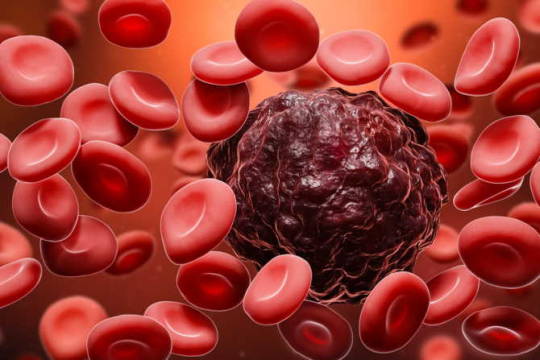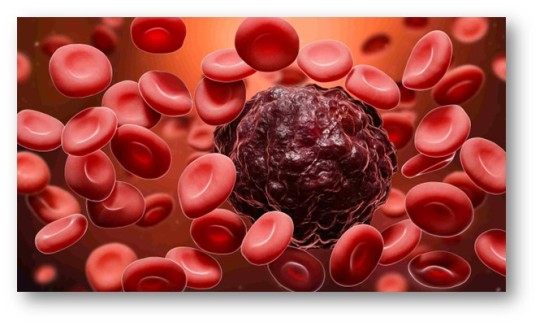#Blood Cancer Treatment Cost In India
Explore tagged Tumblr posts
Text
Blood Cancer Treatment cost in India
Explore blood cancer treatment cost in India with MedSerg. We offer detailed information on affordable treatment options from top specialists. Get world-class care for leukemia and lymphoma, ensuring the best outcomes while keeping costs manageable. Trust MedSerg for expert guidance and affordable solutions.
0 notes
Text
Cancer Treatment Cost in India
The cancer treatment cost in India is among the most affordable globally, attracting patients from around the world. Depending on the type of cancer and treatment required, costs typically range from ₹2,50,000 to ₹25,00,000. This includes chemotherapy, radiation therapy, immunotherapy, and surgeries.
Renowned hospitals like Fortis, Apollo, and Tata Memorial are equipped with advanced technology and experienced oncologists to deliver high-quality care. The affordable cancer treatment cost in India ensures accessibility to world-class medical services. Medical tourism platforms like MedSerg provide end-to-end assistance, making India a preferred destination for cancer treatment.
#Blood Cancer Treatment Cost In India#Best Blood Cancer Treatment in India#Blood Cancer Treatment in India#Blood Cancer Treatment cost in India#Cancer Treatment Cost in India#What is the cost of blood cancer treatment in India?
0 notes
Text
Blood Cancer treatment in India - Cost
Blood cancer, also known as hematologic cancer, occurs due to the abnormal increase in the size of the blood cells. This abnormality begins from the blood cells that produce in the bone marrow and further hinders the normal functioning of blood cells.
Thus, it is typically associated with the defective production of blood cells and/or blood component dysfunction in the lymphatic system and bone marrow. Blood cancer can impact any organ of your body.

Kinds of Blood Cancer
Blood cancer can be divided into multiple kinds depending on the affected tissues or cell origin.
Acute leukaemia: Acute leukaemia originates in the bone marrow and produces aberrant white blood cells. This further interferes with the ability of bone marrow to create normal red blood cells. Acute leukaemia can be divided into two types – acute lymphoblastic leukaemia (ALL) and acute myeloid leukaemia (AML). Both of these blood cancers are aggressive that can quickly become deadly if left untreated.
The diagnosis part depends on bone marrow tests, including flow cytometry, molecular testing and microscopic examination.
Non-Hodgkin lymphoma: This kind of blood cancer develops in the lymphatic system and interferes with the normal functioning of the body to provide immunity against infections. Lymphoma can occur in any organ of the body, from the brain to even the skin. However, it usually affects the lymph nodes.
Lymphomas comprise a large group of blood cancers, among which some grow slow while others are very aggressively fatal. To diagnose lymphomas, doctors recommend undergoing a lymph nodes biopsy or the affected organ biopsy. Based on the biopsy report, the therapy for lymphoma blood cancer is decided.
Chronic lymphocytic leukaemia (CLL): Chronic lymphocytic leukaemia has a close association with lymphoma. This is actually slower lymphoma that mainly affects the blood and bone marrow and sometimes impacts the liver, lymph nodes, spleen and several other organs. Its diagnosis relies on the flow cytometry of blood samples and lymph node biopsy.
Myeloma or Multiple Myeloma: Myeloma or multiple myeloma are actually the same kind of blood cancers that emerge from plasma cells. Plasma cells are an extremely important component of the immune system present in the bone marrow of the body. This kind of cancer is dangerous as it can cause broader damage to the body, including infection, anaemia, bone weakness or cracks and kidney dysfunction. The doctor advises undergoing bone marrow tests or a biopsy along with several other blood tests to diagnose this blood cancer.
<<<Read more >>>
0 notes
Text
#Blood Cancer Treatment Cost In India#Best Blood Cancer Treatment in India#Blood Cancer Treatment in India#Blood Cancer Treatment cost in India#Cancer Treatment Cost in India#What is the cost of blood cancer treatment in India?
0 notes
Text
Benefits of Homeopathy in Blood Cancer Treatment in USA

Homeopathy is an alternative medical system that takes a holistic approach to healing and aims to stimulate the body's self-healing mechanisms. While there is limited scientific evidence supporting the use of homeopathy as a standalone treatment for blood cancers.
Visit Us:- https://issuu.com/drankurprakash-usa/docs/benefits_of_homeopathy_in_blood_cancer_treatment_i
#blood cancer treatment cost in india#lung cancer treatment in india#Homeopathy Kidney Specialist in India
0 notes
Text
Nutrition Guide for Chemotherapy Patients
Understanding the Importance of Nutrition During Chemotherapy
Chemotherapy can significantly strain the body, leading to side effects like fatigue, nausea, and a weakened immune system. Proper nutrition is essential for replenishing energy, maintaining weight, and supporting recovery. A well-balanced diet can help manage these side effects and boost the immune system.
Key Foods for Chemo Patients

1. Hydration
Staying hydrated is crucial. Fluids help counteract nausea and prevent dehydration, which can worsen fatigue. Good hydration options include:
Water: Essential for overall health.
Herbal teas (like ginger or peppermint): Can soothe the stomach.
Warm soups and broths: Easy to digest and hydrating.
Coconut water: Offers natural electrolytes.
2. Proteins
Protein is vital for repairing body tissues. Good sources include:
Lean meats (chicken, turkey) and fatty fish (like salmon) for high-quality protein and omega-3s.
Plant-based options like lentils, beans, tofu, and tempeh.
Greek yogurt: Contains protein and probiotics, aiding digestion.
Eggs: Nutrient-rich and versatile.
3. Whole Grains
Whole grains provide sustained energy, which is essential for combating fatigue. Consider:
Oats: Rich in fiber and gentle on the stomach.
Whole grain bread and pasta: Offer fiber and essential nutrients.
Quinoa and brown rice: Easy to digest and provide slow-releasing energy.
4. Fruits and Vegetables
Packed with vitamins, minerals, and antioxidants, these foods boost immunity and aid recovery. Key choices include:
Berries (blueberries, strawberries): High in antioxidants and gentle on digestion.
Cruciferous vegetables (broccoli, cauliflower): May help detoxify and fight cancer.
Carrots and sweet potatoes: Rich in beta-carotene and easy to prepare.
Leafy greens (spinach, kale): Loaded with essential vitamins.
Bananas: Gentle on the stomach and good for replenishing lost electrolytes.
5. Healthy Fats
Healthy fats support brain function and reduce inflammation. Include:
Nuts and seeds (almonds, chia seeds): High in healthy fats and protein.
Avocados: Provide creamy texture and healthy fats.
Extra virgin olive oil: Rich in antioxidants.
Fatty fish: Good sources of omega-3s.
Foods to Avoid
Certain foods can exacerbate side effects and should be limited:
Raw foods (sushi, undercooked meats): Increase infection risk due to weakened immunity.
Alcohol: Can further suppress the immune system.
Spicy and fried foods: May cause nausea and discomfort.
High-sugar foods: Can lead to energy spikes and crashes.
Final Thoughts
Eating well during chemotherapy is about making informed choices. Aiming for five or six small meals a day, incorporating proteins, whole grains, fruits, vegetables, and healthy fats, can help maintain energy and promote healing. Prioritizing hydration and avoiding harmful foods can significantly improve the experience of chemotherapy, helping patients feel stronger and recover more quickly.
If you or your loved one is undergoing chemotherapy, and want some guides on how to manage the side effects of it, visit this post: https://www.drkarunhematology.com/blog/side-effects-of-chemotherapy-what-you-need-to-know/
To read the original version of this article, you can visit: https://www.drkarunhematology.com/blog/best-healthy-foods-for-chemo-patients/
#chemotherapy#chemotherapy diet#chemotherapy treatment cost#cancer treatment#blood cancer treatment in india#leukemia#platelet disorders
0 notes
Text
Blood Cancer Treatment in India

Blood cancer, also known as hematological cancer or hematopoietic cancer, refers to a group of cancers that affect the production and function of blood cells. It occurs when abnormal cells in the bone marrow, the spongy tissue inside the bones, disrupt the normal production of blood cells
Blood Cancer Treatment:
Treatment for blood cancer depends on the specific type and stage of the disease. Common treatment modalities include chemotherapy, radiation therapy, stem cell transplant, targeted therapy, and immunotherapy. The choice of treatment is determined by factors such as the type of blood cancer, the extent of the disease, and the patient's overall health.
Symptoms:
Symptoms of blood cancer can vary depending on the type and stage of the disease. Common symptoms may include fatigue, weakness, frequent infections, unexplained weight loss, swollen lymph nodes, easy bruising or bleeding, and bone pain.
Diagnosis:
Diagnosing blood cancer involves a combination of physical examination, medical history review, blood tests, bone marrow biopsy, and imaging studies. These tests help determine the presence of cancer, its type, and its stage.
Treatment Risks/Complications:
Blood cancer treatments can carry risks and complications. Chemotherapy and radiation therapy can cause side effects such as nausea, hair loss, fatigue, and increased susceptibility to infections. Stem cell transplant carries risks such as infection, graft-versus-host disease, and organ damage. Targeted therapy and immunotherapy may have specific side effects depending on the drugs used.
Causes:
The exact causes of blood cancer are often unknown. However, certain risk factors have been identified, including genetic predisposition, exposure to certain chemicals and radiation, viral infections, a weakened immune system, and certain inherited conditions.
Procedure & Recovery:
The specific procedure and recovery process depend on the type and stage of blood cancer and the chosen treatment modalities. Surgery is not typically used for blood cancer. Recovery involves managing treatment side effects, monitoring blood counts, and potential maintenance therapies. Supportive care is essential for overall well-being.
Treatment Preparation:
Treatment preparation involves a comprehensive evaluation of the patient's health, including physical examinations, medical history review, blood tests, and imaging studies. The healthcare team discusses treatment options, potential side effects, and the overall treatment plan. Open communication with healthcare providers is important for making informed decisions about treatment.
Clinical Trials:
Clinical trials investigate new treatments or treatment combinations for blood cancer. Participation in clinical trials offers access to innovative therapies and helps advance medical knowledge. Eligibility criteria and informed consent are required for participation.
Cost in India:
The cost of blood cancer treatment in India can vary depending on factors such as the type and stage of cancer, treatment modalities used, hospital charges, and individualized care plans. It is advisable to consult with healthcare providers and hospitals to obtain accurate cost estimates and explore insurance coverage options.
Side Effects:
Side effects of blood cancer treatment can include nausea, hair loss, fatigue, increased susceptibility to infections, and anemia. The severity and duration of side effects vary depending on the specific treatment modalities used and individual response.
Success Rate & Treatment Diet:
The success rate of blood cancer treatment depends on several factors, including the type and stage of cancer, treatment modalities used, and individual response. A healthy and balanced diet is generally advised to support overall health during treatment. Consultation with a registered dietitian can provide personalized dietary guidance based on individual needs and treatment goals.
#Blood cancer#cancer#blood cancer treatment#blood cancer treatment in India#blood cancer symptoms#blood cancer causes#blood cancer risks#blood cancer diagnosis#blood cancer treatment cost
0 notes
Text
The Best News of Last Week - March 20, 2023
🌱 - Okra to the Rescue and Other News You Can't 'Lettuce' Miss This Week
1. 4 day work week being pushed in Congress

Progressive Democrats, led by Rep. Mark Takano of California, are pushing for a four-day workweek to give Americans more time for leisure outside of work. The proposed Thirty-Two Hour Workweek Act would amend the Fair Labor Standards Act of 1938 to require overtime pay for any employee working more than 32 hours in a week at a rate of time and a half.
More than 70 British companies have started to test a four-day workweek, and halfway through the six-month trial, most respondents reported there has been no loss in productivity.
2. Governor Walz signs universal school meals bill into Minnesota law

Minnesota just became the fourth state in the US to provide breakfasts and lunches at no charge to students at participating schools! The bill was signed into law by Governor Tim Walz on Friday, and it's set to ease the burden on parents who struggle to provide meals for their children.
The new legislation will cover the cost of meals for all students, regardless of household income. This means that families who don't qualify for free and reduced meals but who struggle to pay for food will also be covered. The bill is also meant to prevent "lunch shaming" practices, where children are denied food or given substitutes that indicate their family is struggling financially.
3. Texas Researchers Use Okra to Remove Microplastics from Wastewater

Researchers from Tarleton State University in Fort Worth, Texas discovered that food-grade plant extracts from okra have the power to remove microplastics from wastewater. Polysaccharide extracts from plants like fenugreek, cactus, aloe vera, tamarind, and okra were found to be effective non-toxic flocculant alternatives to remove microplastics from water.
Polysaccharides from okra and fenugreek were best for removing microplastics from ocean water, while a combination of okra and tamarind worked best for freshwater. Furthermore, plant-based flocculants can be easily implemented in existing water treatment facilities.
4. In the northern California snow, stranded cows are getting emergency hay drops

The recent wave of unprecedented snowfall in California has left cattle stranded and starving. When rancher Robert Puga ran out of hay, neighboring Humboldt County officials put together an emergency rescue operation called "Operation Hay Drop." State, federal, and local officials airdropped stranded cattle bales of hay to feed them.
Humboldt County Sheriff William Honsal went to the Coast Guard with the idea of a helicopter rescue, and by midday Sunday, March 5, Operation Hay Drop was underway. So far, Operation Hay Drop has been a success, said rancher Puga. The mission covers about 2,500 head of cattle over several miles.
5. Make-A-Wish Foundation no longer considers Cystic Fibrosis to be automatically qualifying due to improvements in life outcomes for patients

Given the ongoing life-changing advances in cystic fibrosis, beginning in January 2024, cystic fibrosis will no longer automatically qualify for a wish.
6. 1st woman given stem cell transplant to cure HIV is still virus-free 5 years later

In 2017, a woman known as the "New York patient" underwent a stem cell transplant to treat both her cancer and HIV. Now, about 30 months later, she has been virus-free and off her HIV medication, leading some researchers to suggest that she may have been cured of HIV.
The New York patient, received stem cells taken from umbilical cord blood that also had the HIV-resistance genes. However, it's important to note that there is no official distinction between being cured and being in long-term remission, and the medical team is waiting for longer-term follow-up before making any definitive statements.
7. Cheetahs Back in Wild in India After Seven Decades

Namibian cheetahs have been successfully reintroduced to India after the world's fastest land animal was declared extinct in the South Asian country more than 70 years ago. Two cheetahs, Obaan and Asha, were released into the wild of Kuno National Park after being brought to India last September.
The species is being reintroduced on an experimental basis as part of a major prestige project for Prime Minister Narendra Modi. India aims to bring in about 100 of the big cats over the next decade. The African cheetah is a different subspecies from the extinct Asiatic cheetah, which once roamed the sub-continent in great numbers.
Lastly, I recently opened a Youtube channel. Subscribe for a weekly compilation of feel good videos.
- - -
That's it for this week :) If you liked this post you can support me with a small kofi donation:
Buy me a coffee ❤️
Let's carry the positivity into next week and keep spreading the good news!
640 notes
·
View notes
Text
Reliable Pathology Lab in Gurugram: Your Guide

In today’s fast-paced world, timely and accurate health diagnostics play a pivotal role in maintaining overall well-being. Whether it’s a routine health check-up or a specialized test to diagnose a specific condition, finding a trusted pathology lab is crucial. For residents of Gurugram, the bustling hub of Haryana, access to high-quality pathology services is not just a convenience but a necessity. In this article, we delve into everything you need to know about choosing a reliable Pathology Lab in Gurugram and why it matters for your health.
Understanding the Role of a Pathology Lab
Pathology labs are an integral part of the healthcare system. They provide essential diagnostic services by analyzing blood, tissue, urine, and other biological samples. The results generated by these labs help doctors diagnose diseases, monitor treatment progress, and predict health outcomes.
Key services offered by pathology labs include:
Blood Tests: To evaluate general health or detect conditions like diabetes, anemia, and infections.
Urine Analysis: Useful for identifying urinary tract infections, kidney problems, and other disorders.
Histopathology: The study of tissues to diagnose diseases such as cancer.
Microbiology Testing: Identifying infectious agents like bacteria, viruses, and fungi.
Genetic Testing: For understanding inherited conditions and predispositions.
In Gurugram, where the healthcare landscape is rapidly evolving, pathology labs have embraced advanced technologies and techniques to deliver accurate and fast results.
Why Choose a Pathology Lab in Gurugram?
As one of India’s most developed cities, Gurugram is home to a plethora of medical facilities, including top-tier pathology labs. Here are some compelling reasons why choosing a local pathology lab in Gurugram makes sense:
1. Accessibility and Convenience
Many pathology labs in Gurugram are strategically located near residential areas, hospitals, and clinics. This ensures easy access for health-related individuals who need quick diagnostic services without the hassle of long commutes.
2. Advanced Technology
Pathology labs in Gurugram are equipped with state-of-the-art diagnostic tools. From automated blood analyzers to cutting-edge genetic testing equipment, these labs use modern technology to ensure precision and reliability.
3. Qualified Professionals
The city boasts a pool of highly skilled pathologists, lab technicians, and microbiologists. These experts ensure that every test is conducted with utmost accuracy and professionalism.
4. Home Collection Services
Many pathology labs in Gurugram offer home sample collection services, making it convenient for individuals who may be unable to visit the lab due to health or time constraints.
5. Comprehensive Test Panels
Whether you need a simple CBC (Complete Blood Count) or a specialized hormonal assay, most labs in Gurugram offer an extensive range of diagnostic tests to cater to diverse health needs.
Factors to Consider When Choosing a Pathology Lab in Gurugram
With so many options available, selecting the right pathology lab can be overwhelming. Here are some critical factors to consider:
1. Accreditation and Certification
Always opt for labs that are accredited by reputed organizations like NABL (National Accreditation Board for Testing and Calibration Laboratories). Accreditation ensures that the lab adheres to stringent quality standards.
2. Turnaround Time
Quick results are vital, especially for time-sensitive diagnoses. Check if the lab provides same-day or next-day reporting for standard tests.
3. Hygiene and Safety Protocols
Ensure that the lab follows strict hygiene and safety measures, particularly for sample collection and handling. This is especially important in the post-pandemic era.
4. Transparency in Pricing
Reliable pathology labs maintain clear pricing structures with no hidden costs. Compare the prices of commonly needed tests across labs in Gurugram to ensure affordability.
5. Online Accessibility
Many labs now offer online portals where you can book tests, track results, and even consult with specialists. This digital integration adds to the convenience factor.
Popular Pathology Labs in Gurugram
Gurugram is home to numerous renowned pathology labs that cater to the healthcare needs of its residents. Some of the top names include:
Dr. Lal PathLabs
Services: Wide range of diagnostic tests, home collection, and online reporting.
Locations: Multiple branches across Gurugram.
SRL Diagnostics
Services: Advanced testing facilities, genetic testing, and corporate health packages.
Locations: Well-distributed centers in the city.
Max Lab
Services: Comprehensive health check-up packages, specialized diagnostic services.
Locations: Associated with Max Hospital, Gurugram.
Thyrocare
Services: Affordable preventive health packages and routine diagnostics.
Locations: Pan-Gurugram home collection services.
Core Diagnostics
Services: Specialized in advanced molecular diagnostics and oncology testing.
Locations: Premium services with a focus on cutting-edge technology.
The Importance of Regular Health Check-Ups
Health-related individuals understand the value of preventive care, and regular diagnostic tests are a cornerstone of this approach. Pathology labs in Gurugram play a vital role in:
Early Disease Detection: Identifying conditions like diabetes, hypertension, and cholesterol issues early can prevent complications.
Monitoring Chronic Conditions: Tests help manage chronic diseases like thyroid disorders and kidney problems more effectively.
Tracking Treatment Progress: Regular tests provide insights into how well a treatment plan is working.
Tips for Making the Most of Your Pathology Lab Experience
Follow Pre-Test Instructions: Certain tests, like fasting blood sugar or lipid profiles, require fasting. Always follow the lab’s guidelines to ensure accurate results.
Bring Previous Reports: If you’re undergoing a follow-up test, carry previous reports for comparison.
Ask Questions: Don’t hesitate to ask the lab staff or your doctor about any test’s purpose and relevance.
Opt for Comprehensive Packages: Many labs in Gurugram offer bundled health check-up packages that provide better value for money.
Conclusion
Pathology labs in Gurugram are a lifeline for health-conscious individuals and those managing chronic conditions. With their state-of-the-art facilities, skilled professionals, and customer-centric services, these labs ensure that residents have access to reliable and timely diagnostic solutions. By choosing a trusted pathology lab, you’re not just investing in a diagnostic test but also in your long-term health and peace of mind.
So, whether you’re scheduling a routine check-up or require advanced testing, the pathology labs in Gurugram stand ready to serve your healthcare needs with excellence and efficiency. Prioritize your health today by selecting a lab that aligns with your requirements and ensures accurate, timely results.
1 note
·
View note
Text
Your Guide to Affordable Colon Cancer Treatment in India

Colon cancer, also called colorectal cancer, is one of the most prevalent cancers worldwide. Affecting millions each year, it originates in the large intestine and can significantly impact overall quality of life. Early detection and advanced treatment options play a vital role in improving patient outcomes. Fortunately, India offers world-class healthcare facilities, including Treatment in Fortis Hospital India and Treatment in Artemis Hospital India, at a fraction of the cost compared to Western countries.
Understanding Colon Cancer Colon cancer begins in the lining of the colon or rectum, often developing from non-cancerous polyps that turn malignant if left untreated. It affects both men and women, particularly those over the age of 50. Symptoms such as abdominal pain, blood in stool, and weight loss should never be ignored, as early intervention can save lives.
Diagnosing Colon Cancer in India India excels in early and precise cancer detection using state-of-the-art diagnostic techniques such as:
Colonoscopy: The gold standard for identifying polyps or tumors.
CT Colonography: A non-invasive imaging method offering detailed views.
Biopsy: Tissue sample analysis to confirm malignancy.
PET and MRI Scans: Advanced imaging to assess cancer progression.
Stages of Colon Cancer and Treatment Options Colon cancer is classified into five stages, with treatment plans tailored to each stage:
Stage 0: Localized to the colon’s inner lining; often treated through surgical removal of affected areas.
Stage I: Cancer penetrates deeper layers but remains confined; surgery ensures complete removal.
Stage II: Cancer spreads through the colon wall but avoids lymph nodes. Surgery combined with targeted therapy is effective.
Stage III: Cancer affects lymph nodes but not distant organs. Comprehensive care, including surgery and chemotherapy, is essential.
Stage IV: Cancer spreads to distant organs like the liver or lungs. Advanced therapies, including palliative care, manage symptoms and improve quality of life.
Lifestyle Changes for Prevention Preventive measures can significantly lower the risk of colon cancer:
Eat a high-fiber diet with plenty of fruits, vegetables, and whole grains.
Exercise regularly and maintain a healthy weight.
Avoid smoking and limit alcohol consumption.
Schedule routine screenings, especially after age 45 or earlier for high-risk individuals.
Why Choose India for Colon Cancer Treatment? India has become a trusted destination for medical tourism, especially for colon cancer treatment. Renowned hospitals like Artemis Hospital, Fortis Hospital, and others offer cutting-edge technology, skilled surgeons, and compassionate care. Patients receive exceptional medical attention while benefiting from cost-effective solutions. With the assistance of Medaviate, patients worldwide can connect with the best cancer hospitals in India, ensuring tailored and efficient treatment.
Treatment Options in India India offers a wide range of treatment options, ensuring patients receive the best care possible:
Surgical Procedures: Hospitals like Artemis Hospital India and Fortis Hospital India specialize in minimally invasive techniques, including laparoscopic and robotic surgeries. These methods ensure precision and quicker recovery.
Chemotherapy: Effective drugs like Oxaliplatin and Capecitabine shrink tumors and prevent recurrence.
Targeted Therapy: Monoclonal antibodies attack specific cancer-promoting proteins.
Top Hospitals for Colon Cancer Treatment in India
Artemis Hospital: A leader in robotic and minimally invasive surgeries, offering advanced care with compassionate support.
Fortis Hospital: Renowned for its multidisciplinary approach and high success rates in colon cancer treatment.
Medanta — The Medicity: Specializing in early detection and personalized therapies, ensuring patients receive optimal care.
Affordable Treatment Without Compromising Quality Colon cancer treatment in India is affordable, with costs ranging between INR 3,00,000 and INR 5,00,000. Despite the lower price, hospitals like Fortis and Artemis uphold international standards, offering the best care available.
Why Medaviate? At Medaviate, we pride ourselves on connecting patients with the best cancer hospitals in India. We guide individuals through every step, from selecting specialists to arranging consultations. Our mission is to provide access to life-changing treatments while ensuring a seamless experience.
Final Thoughts India’s healthcare system, with its combination of advanced technologies and highly skilled doctors, provides a beacon of hope for those battling colon cancer. Hospitals like Fortis Hospital India and Artemis Hospital India lead the way in offering top-tier treatments at competitive costs. With the dedicated support of Medaviate, patients can confidently take the first step toward recovery and a healthier future.
1 note
·
View note
Text
Advancements In Liver Cancer Treatment At Indian Hospitals
India is one of the preferred healthcare destinations among international patients for advanced cancer diagnostic tests, treatments, and therapies. Every year, thousands of people with liver cancer-related complications travel to the country and get admitted to the best hospitals for liver cancer in India, in cities such as Gurgaon, Delhi, Chennai, Mumbai, or Bangalore. The major reason behind the trust of so many patients is the availability of advanced technologies for cancer treatments at affordable costs.
This article discusses some of the advanced methods of detection and diagnosis, and cancer therapies available in the best liver cancer treatment hospitals in India.

Liquid biopsies
This is a non-invasive blood test top oncologists often prescribe for the detection of liver cancer in patients. Unlike regular cancer biopsies, this procedure does not require surgical removal of cells and tissues from suspected tumors and organs. Instead, doctors try to trace biomarkers of cancer cells, like circulating tumor DNAs in the bloodstream. This advanced biopsy test is useful, especially for early detection, and monitoring of disease prognosis and treatment outcomes. Every one of the best liver cancer treatment hospitals in India considers this test as the gold standard for liver cancer diagnostics.
Advanced Imaging Techniques
Accurate medical screening using imaging techniques is crucial for cancer diagnosis. Cancer researchers are using advanced imaging technologies to compare the liver’s dual blood supply system to detect and track benign and malignant lesions. Some of the advanced screening tests the best liver cancer treatment hospitals in India regularly perform are Multi-parametric Magnetic Resonance Imaging (MRI), Contrast-Enhanced Ultrasound (CEUS), and computed tomographies.
Multi-parametric MRI – This imaging technique uses radio waves to detect lesions and tumor growth in the liver and derive information related to the characteristics of lesions based on multiple imaging parameters.
Contrast-enhanced ultrasound uses contracting agents (injected from outside during the test) to accurately visualize the dual bloodstream to the liver for the detection of contrast differences between benign and malignant liver lesions.
Positron Emission Tomography With Computed Tomography (PET-CT) – This diagnostic imaging technique combines positron emission tomography with computed tomography using radioactive tracers. Cancerous cells and tissues absorb tracers, causing ‘hot spots’ to appear in the image.
Genetic profiling of liver cancer
Personalized cancer treatments are proving more effective in containing the growth of cancer, destroying cancer cells effectively, and ensuring minimal recurrence. However, personalized therapies require genomic profiling and an understanding of the specific mutation patterns of cancer cells in a patient. This is necessary for liver cancers, like hepatocellular carcinoma (HCC). It helps to detect the signaling pathways that mutated cancer cells use to spread to neighborhood tissues and other parts of the body through the bloodstream. Doctors at some of the best liver cancer treatment hospitals in India conduct genomic profiling of liver cancer through analysis of tumor protein p53 (TP53), beta-catenin 1 (CTNNB1), and epidermal growth factor receptor (EGFR) genes.
Application of Artificial Intelligence (AI) and Machine Learning for pattern recognition is also becoming very popular in profiling genomic data as it removes human biases and finds all available clues.
Treatment innovations
The major task of advanced diagnostics is to make an accurate prognosis and aid in treatment planning. Hospitals with limited infrastructure and a lack of skilled staff may not provide necessary treatments at affordable costs. However, this is not a problem with any of the best liver cancer treatment hospitals in India. Some of the modern treatments that international liver cancer patients get in Indian hospitals are:
Robotic arm-assisted surgery – Liver cancers often require resection procedures. Removing cancer cells from internal organs, like the liver, requires high-precision surgical skills and time. Robotic arms can deliver the highest level of surgical precision repeatedly with a minimum incision. This improves faster recovery of surgical wounds. Advanced imaging tools help plan, execute, and monitor robotic surgeries with 3-dimensional imaging visualization, in real-time.
Advanced Ablative Techniques – microwave and high-intensity focussed ultrasound-based ablation of cancer cells in the liver are becoming very effective in cases where surgical removal is difficult. This technique is particularly useful for tumors of less than 3 cm in size.
Targeted immunotherapies – These are the most advanced fields in cancer treatments and many of the top oncologists are adopting them with impressive success rates. In these types of therapies, doctors leverage the body’s natural immune system to locate, identify and destroy cancer cells. Personalized drugs or genetically modified T cells are used to recognize proteins in cancer cells for targeted killing. Some of the common drugs used in immunotherapies for liver cancers are lenvatinib, sorafenib, and cabozantinib. Target therapies are also used in combination with surgical intervention to minimize the recurrence of cancer growth.
Some of the best liver cancer treatment hospitals in India with accompanying research facilities are also working on locoregional therapies, like Drug-Eluting Beads Trans-arterial Chemoembolization (DEB-TACE) and Yttrium-90 Radio-embolization (TARE).
If you are looking for liver cancer treatment outside india, you can consider Germany. Germany is renowned for its state-of-the-art medical infrastructure and cutting-edge treatments for liver cancer. The Liver Cancer Treatment Cost in Germany typically includes advanced diagnostic methods like genomic profiling, high-precision imaging, and innovative therapies such as robotic surgery, targeted immunotherapies, and locoregional treatments like TARE. While Germany’s healthcare costs are higher compared to countries like India, they remain competitive given the high standard of care, advanced technologies, and access to globally renowned oncologists. This makes Germany a preferred destination for patients seeking premium cancer care solutions.
Bottom-line
Advances in cancer diagnostics and treatments and affordable cancer care at the best liver cancer treatment hospitals in India are giving new hope to cancer patients and their families across the world. Medical tourism companies are also helping patients to access the best of cancer care at the most affordable costs.
0 notes
Text
What is the cost of blood cancer treatment in India?
Curious about the cost of blood cancer treatment in India? Get insights into affordable pricing for advanced treatments like stem cell transplants, chemotherapy, and immunotherapy at top-rated hospitals. Find expert care and high success rates at competitive prices.
0 notes
Text
Blood Cancer Treatment Cost in India
The cost of blood cancer treatment in India can vary significantly based on the type of blood cancer, the hospital, and the treatment options required. On average, the cost of treatment for blood cancer in India ranges from USD 4,000 to USD 15,000. This includes diagnostic tests, chemotherapy, stem cell transplants, immunotherapy, and follow-up care. The cost may be higher if advanced treatments such as CAR-T cell therapy are recommended.
Despite the high standard of care, the cost of blood cancer treatment in India is considerably lower than in countries like the USA, the UK, or Australia, which makes India a prime destination for medical tourists. MedSerg provides patients with the best treatment packages that combine cost-effectiveness with world-class medical care.
#Blood Cancer Treatment Cost In India#Best Blood Cancer Treatment in India#Blood Cancer Treatment in India#Blood Cancer Treatment cost in India#Cancer Treatment Cost in India#What is the cost of blood cancer treatment in India?
0 notes
Text
Zoledronic Acid Exporters In India
Zoledronic Acid Exporters in India: A Growing Market for Global Healthcare
Zoledronic Acid, a potent bisphosphonate medication, is primarily used to treat bone-related conditions such as osteoporosis, Paget’s disease, and various forms of cancer. As an essential drug in the global healthcare landscape, Zoledronic Acid plays a vital role in improving the quality of life for millions of people worldwide. India, known for its robust pharmaceutical industry, has emerged as a significant exporter of Zoledronic Acid, contributing to both regional and global health systems.

The Global Demand for Zoledronic Acid
The growing prevalence of osteoporosis, particularly among the aging population, has spurred the demand for Zoledronic Acid. The drug helps in the prevention of bone fractures by inhibiting bone resorption, making it an indispensable part of treatment protocols in many countries. Additionally, Zoledronic Acid is used in cancer therapies, particularly for managing hypercalcemia (elevated calcium levels in the blood) and preventing skeletal-related events (SREs) in patients with bone metastases. As these conditions continue to rise, the need for Zoledronic Acid has expanded globally, and countries are increasingly turning to Indian exporters to meet their healthcare needs.
India’s Pharmaceutical Industry: A Powerhouse for Exports
India's pharmaceutical sector is renowned for its high-quality medicines, cost-effectiveness, and regulatory compliance. The country has developed a strong manufacturing and export base in the generic drug market, supported by an advanced infrastructure of manufacturing plants that adhere to stringent international standards. With the growing demand for Zoledronic Acid, many Indian pharmaceutical companies have established themselves as key players in its production and export.
Indian Zoledronic Acid exporters offer this medication at competitive prices without compromising on quality, making it an attractive choice for international buyers, especially in developing countries where access to affordable medication is crucial. Moreover, India’s well-established regulatory framework ensures that exported Zoledronic Acid meets the quality standards set by various global regulatory authorities, such as the US FDA, European Medicines Agency (EMA), and World Health Organization (WHO).
Factors Driving Zoledronic Acid Exports from India
Cost-Effectiveness and Affordability: One of the primary reasons Indian Zoledronic Acid exporters are gaining traction in global markets is the affordability of the drug. Indian pharmaceutical manufacturers are able to produce the medication at lower costs due to reduced labor costs, economies of scale, and government incentives. This has made Zoledronic Acid from India a cost-effective solution for countries seeking to provide affordable healthcare to their populations.
High-Quality Manufacturing Standards: Indian exporters follow Good Manufacturing Practices (GMP) and other international quality standards to ensure that Zoledronic Acid is produced to the highest specifications. This focus on quality assures buyers that the drug is both safe and effective, a critical consideration in the global healthcare market.
Strategic Location and Supply Chain: India’s strategic location in Asia, coupled with its robust logistics and supply chain infrastructure, allows for the efficient distribution of Zoledronic Acid to international markets. Ports like Mumbai, Chennai, and Kolkata serve as key export hubs, facilitating timely delivery to various parts of the world.
Increasing International Collaborations and Partnerships: Indian Zoledronic Acid exporters are also benefitting from increasing collaborations with multinational pharmaceutical companies. These partnerships not only help expand their market reach but also ensure access to advanced technologies and innovations in drug manufacturing.
Regulatory Compliance and Certifications: Zoledronic Acid manufacturers in India are well-versed in complying with regulatory requirements of different countries. By obtaining necessary certifications such as WHO-GMP, ISO, and others, Indian exporters enhance their credibility in international markets. This makes them a trusted partner for pharmaceutical companies, hospitals, and clinics across the globe.
Challenges Faced by Zoledronic Acid Exporters in India
While India’s pharmaceutical industry is a leader in generic drug exports, there are still challenges that Zoledronic Acid exporters face. One significant challenge is the evolving regulatory landscape. Different countries have their own set of standards and requirements for the approval of pharmaceutical products. Exporters must navigate this complex web of regulations to ensure smooth market entry.
Additionally, competition from other low-cost manufacturing countries, such as China, can impact India's market share. However, India’s edge lies in its strong reputation for quality and reliability, which continues to attract international buyers.
The Future Outlook for Zoledronic Acid Exports from India
The future of Zoledronic Acid exports from India looks promising. As global healthcare needs evolve, especially with the aging population and rising incidences of chronic conditions, the demand for medications like Zoledronic Acid will continue to grow. Indian exporters are well-positioned to meet this demand by providing affordable, high-quality drugs to a global audience.
Moreover, with technological advancements in drug manufacturing, including improvements in production efficiency and drug delivery systems, Indian exporters are expected to maintain their competitive advantage. As the global healthcare landscape evolves, Indian Zoledronic Acid exporters will remain crucial players in providing access to life-saving treatments at affordable prices.
Conclusion
India's role as a key exporter of Zoledronic Acid underscores its importance in the global pharmaceutical market. With a strong foundation in quality manufacturing, cost-effective production, and a commitment to meeting international standards, Indian Zoledronic Acid exporters are poised to continue their growth trajectory. As the global demand for this essential medication rises, India’s pharmaceutical sector will undoubtedly remain at the forefront, offering affordable and reliable healthcare solutions to millions of people worldwide.URL: For more information, visit Synnat Pharma : Zoledronic Acid Exporters in India
0 notes
Text
#Blood Cancer Treatment Cost In India#Best Blood Cancer Treatment in India#Blood Cancer Treatment in India#Blood Cancer Treatment cost in India#Cancer Treatment Cost in India#What is the cost of blood cancer treatment in India?
0 notes
Text
What Is Car T-Cell Therapy Used To Treat?

CAR T-cell therapy is an advanced cancer treatment that involves modifying a patient’s own T-cells to better recognize and attack cancer cells. This therapy is mainly used to treat blood cancers such as leukemia, lymphoma, and myeloma, especially in cases where other treatments have failed. The process includes extracting T-cells, genetically modifying them, and reintroducing them into the patient's body to target cancer cells more effectively.
CAR T-cell therapy has shown promising results, particularly in treating certain types of B-cell malignancies. However, it is a complex and expensive treatment. The CAR T-cell therapy cost in India can vary, but it is generally more affordable compared to Western countries, making it an attractive option for patients seeking advanced cancer treatment at a lower price. The cost in India may range from INR 20 to 40 lakhs, depending on the hospital and type of cancer treated.
For more information click on the mentioned link below: https://www.edhacare.com/treatments/cancer/car-t-cell-therapy
0 notes